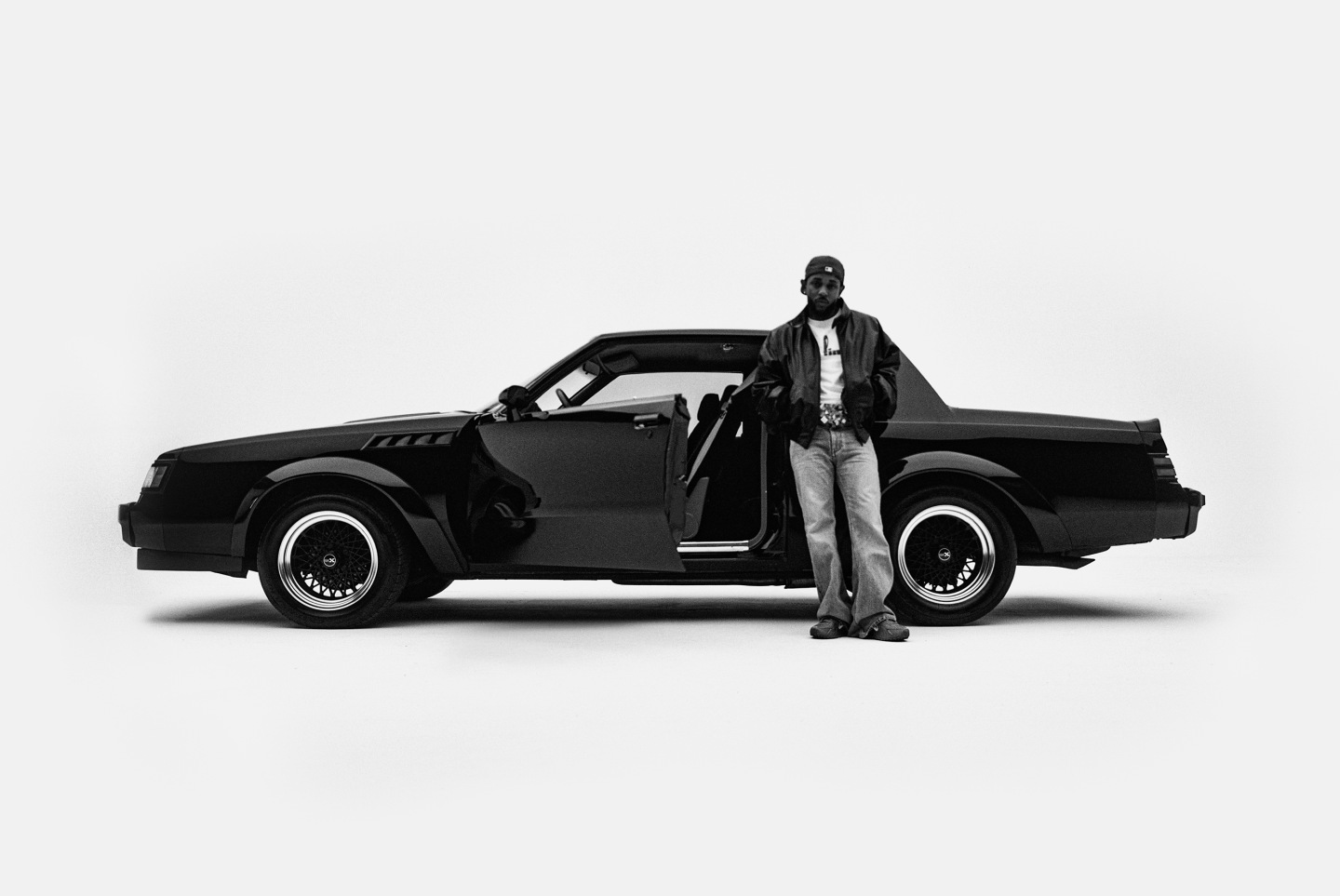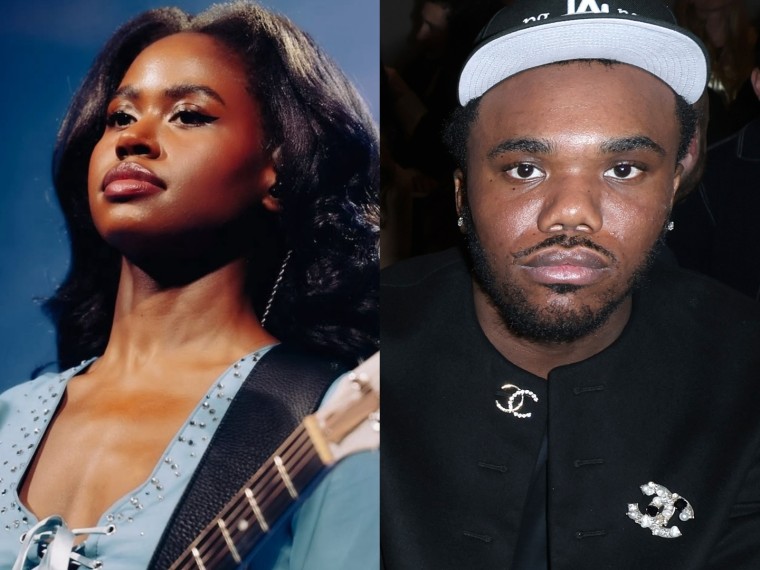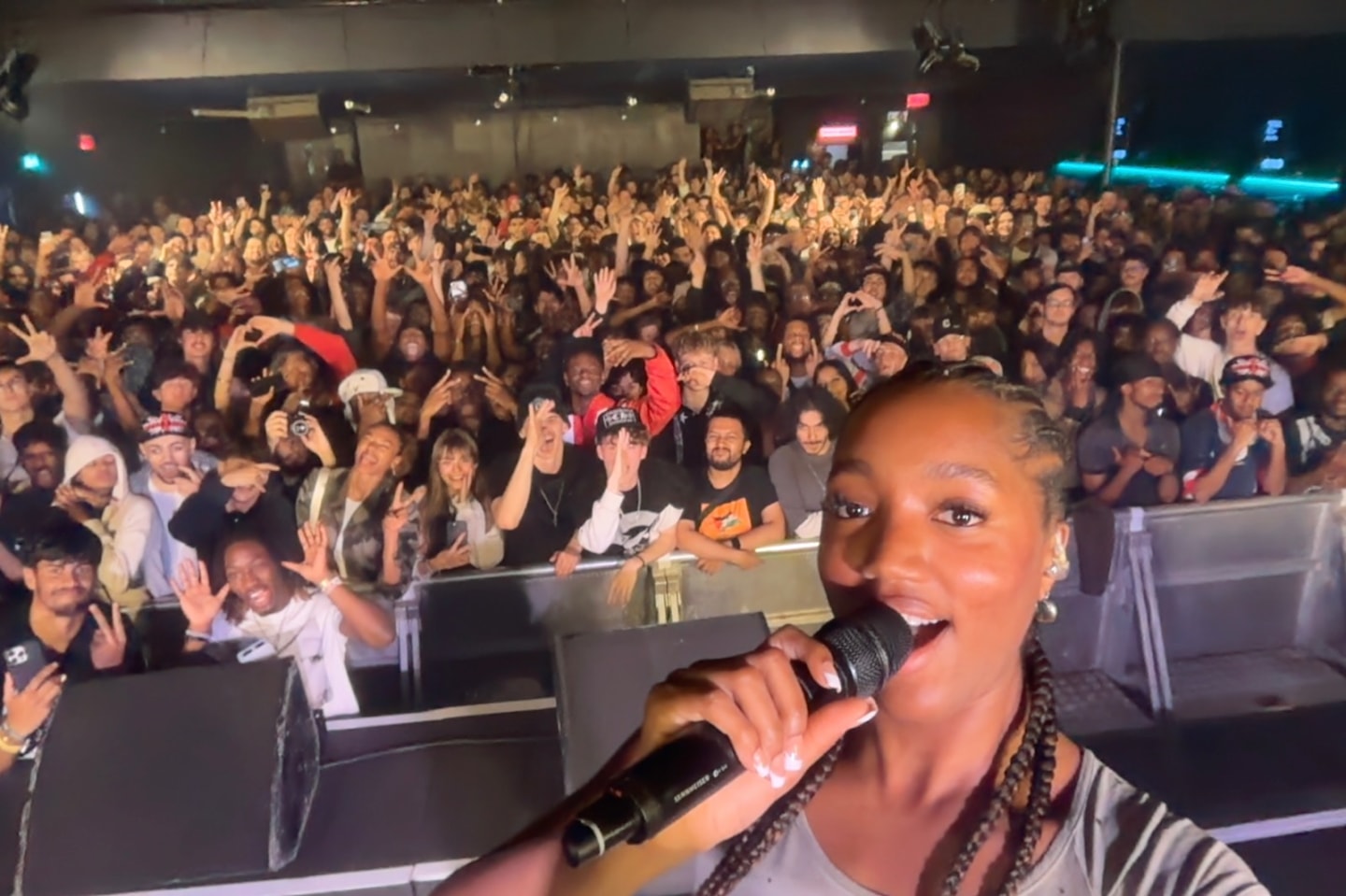GNX”>
Kendrick Lamar. Photo by pgLang
Barack Obama knew it was bullshit. His acceptance speech for the 2009 Nobel Peace Prize says as much, arguing “force may sometimes be necessary.” While his nomination had been controversial, premature or entirely unearned, the speech received bipartisan praise. Americans love a strongman.
You have to assume Kendrick Lamar believes something similar about the world of hip-hop. That evil does exist, and that it only responds to force; that the well-intentioned masses need an enlightened king to deliver them, and that he is enlightened enough to be that king. “I deserve it all,” he hisses on “man at the garden,” the fourth track from his new surprise album GNX. If you disagree, find yourself a bigger gun.
The most surprising thing about GNX, released without warning last Friday, is that Kendrick Lamar has AzChike on his playlist. The second most surprising is a fresh determination to recenter hip-hop on his native L.A. Lamar has long seemed content set apart from the industry’s mainstream heart, commercially successful but not always culturally dominant, if you measure a rapper’s impact by the quantity of their imitators (“what I’ve learned is n***as don’t like the West Coast and I’m fine with it, I’ll push the line with it”). Helmed by Mustard, Sounwave, and Taylor Swift’s go-to guy Jack Antonoff, GNX marks a sonic pivot back towards accessibility after the elaborate set pieces of 2022’s Mr. Morale & the Big Steppers.
This feels self-evident from the album’s opening suite, uniformly excellent despite a creeping sense of deja vu. Didn’t Rihanna sound so good on DAMN.? You’ll love SZA on “luther.” Or try the high-octane hijinks of “squabble up” if your KDot Top 5 includes “family ties” and “HUMBLE.” Elsewhere, one imagines Jack Dorsey, who Kendrick name checks in Big Sean fashion on “hey now,” meditating somewhere with “man at the garden” playing off the Bluetooth speaker, like Stock investments… Ommmmmmmmm… More entities…
While its exclusion here has merely fueled wishful rumors of another Kendrick project to drop imminently, “Not Like Us” is GNX’s guiding light; the killing blow against longtime rival Drake, and its superior sibling “euphoria,” cast long shadows over the proceedings. Setting aside the unprecedented scale of the spectacle, what made Kendrick and Aubrey’s springtime spat so magnetic was the dispensation of pretense — no subliminals or triple time flows, just pure lyrical venom. Attempting to depose a declining emperor, Kendrick set aside his usual gimmicks and called up Cardo and Mustard to maximize his diss tracks’ replay value. Backed into a corner and forced to rap like it mattered, Drake cut two of his best tracks in years, though that wasn’t near enough for a win.
Given how thoroughly that strategy worked out for Kendrick, it’s natural that GNX broadly attempts to coax lightning to strike twice, interlaced with low-profile local features as Kendrick burrows into his ongoing Drakeo the Ruler impression. Lamar has long been a careful student of West Coast hip-hop history, but his invocation of the city’s more contemporary sounds via Drakeo’s flow remains a striking artistic concession for a rapper best understood until now as a stylistic maverick. One imagines this assimilation or appropriation must be thrilling for the uninitiated, free to enjoy the Richter 8.6 of “hey now” without wondering where the late Drakeo might be today, nearly two years on from his unsolved murder. We know the truth: imitators ensure the Ruler’s legacy will live on long enough to be overshadowed. The majority of listeners will never follow the aesthetic thread back to the originator (Though the late rapper’s younger brother Ralfy the Plug seems generally positive about GNX and has offered Kendrick a posthumous verse).
Drakeo isn’t the first rapper to have his style lifted without credit, but questions of creativity and ownership aside, these copycat flows just aren’t very good. “Fuck a double entendre I want y’all to feel this shit,” Kendrick declares partway through “wacced out murals,” but it’s hard to believe he’s really feeling it himself. Lacking the singular focus of the spring’s diss blitz and the conceptual scaffolding of his more grandiose albums, songs like “peekaboo” and “gnx” feel more nervy than nerve-wracking, barking loudly to hide a lack of bite; when Kendrick raps “On the dead guys n***a I ain’t goin,” it mostly reminds me of Blueface’s viral peak five years ago, namely white teens across LA routinely posting TikToks to Famous Cryp.
These anticlimactic misfires are all the more grating for how much sharper Kendrick’s songwriting has become. Though the heady subject matter of Mr. Morale inspired complaints of inaccessibility, the gravity of the topics at hand often grounded Lamar’s raps in traditionally legible forms, even if the beats tilted towards the avant-garde. Where GNX leans into Kendrick’s established strengths — lush histories rendered with a wistful eye for detail, swanky mid-tempo jams that delicately two-step toward romance — the assembled talent crack hits as easily as Shohei Ohtani at bat. For a lesser MC, the Tupac flip and past lives conceit of “reincarnated” would fall apart like a tissue paper umbrella; instead, it compresses multiple lifetimes of feeling into a single digestible sequence, as if Kendrick arrived in the studio fresh off a viewing of The Beast. SZA remains a dependable collaborator, easily elevating “gloria” and “luther,” but the head and shoulders standout is “dodger blue,” which deploys Roddy Ricch, WallieTheSensei, and Siete like a West Coast chapter of Fresh X Reckless to mesmerizing effect.
GNX sees Kendrick go to war in pursuit of his preferred peace: a less volatile pecking order, with him on top. A few weeks after the release of “Not Like Us,” former Drakeo the Ruler associate Remble took shots at Ralfy the Plug and Blue Pesos of rap duo OTM in a freestyle over Mustard’s titanic instrumental — OTM would respond in kind two days later with my personal vote for the best take on this beat (why settle for an imitator when you can hear from the protégés?).
Not long after, Kendrick tapped Remble to perform at The Pop Out; it felt like drawing an implicit line amidst Cold War tensions, less a calculated snub than an unfortunate reflection of competing affiliations. But when underground LA rapper Dody6 posted a flick of him and Kendrick working on “hey now” in the studio, there were Ralfy and Duffy and Blue Pesos in the comments, congratulations encoded into fire and trophy emojis. Fifteen years ago, Obama said, “the instruments of war do have a role to play in preserving the peace.” On GNX, Kendrick Lamar lives out this Orwellian maxim to the extreme, building a new status quo one diss at a time.




